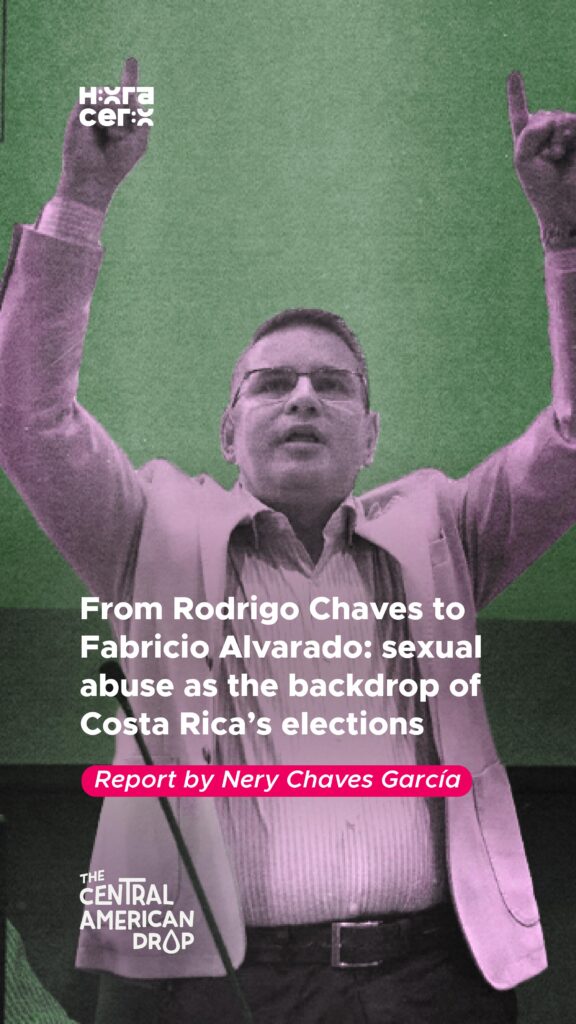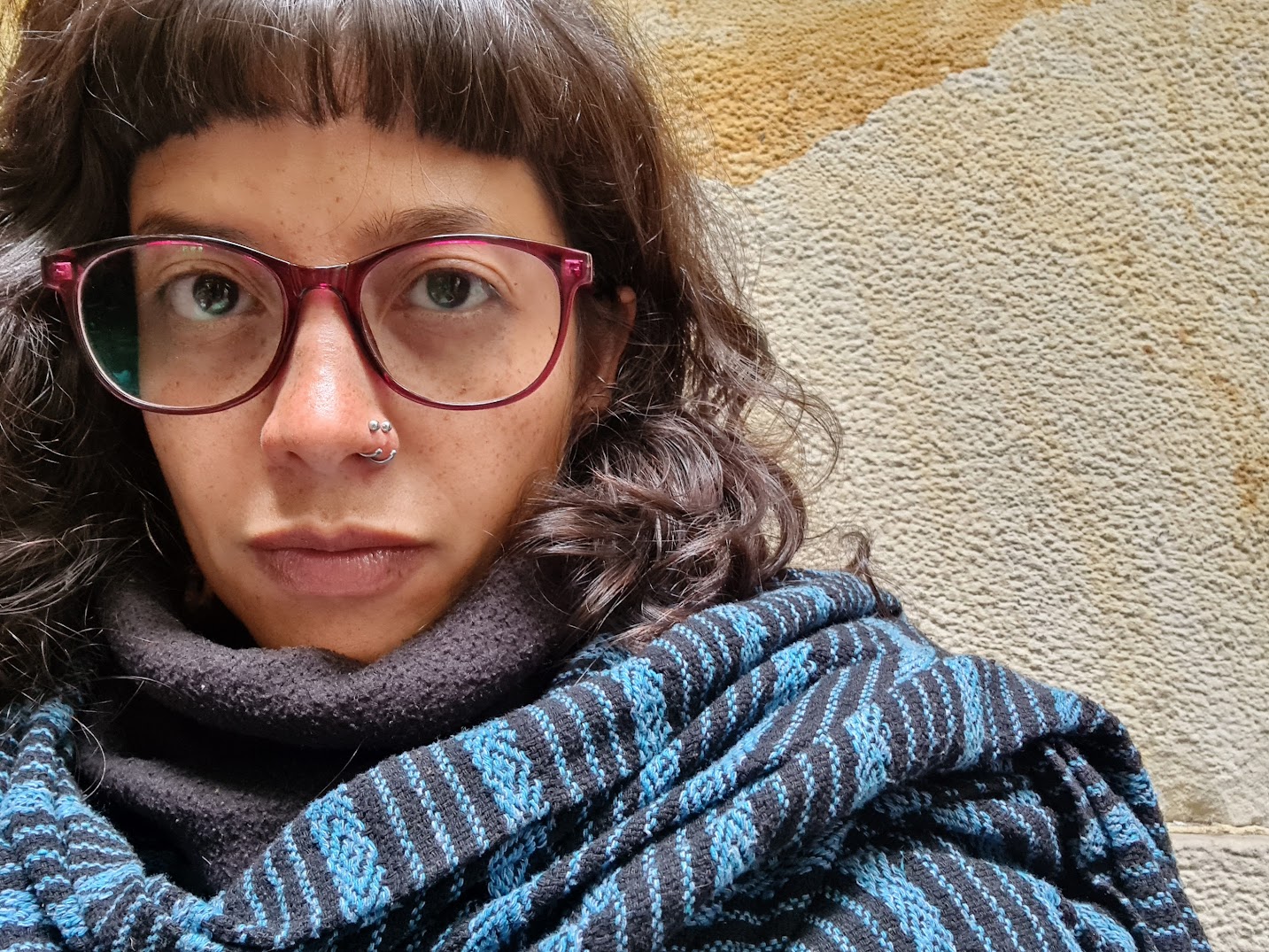
Once again, in the so called “Switzerland” of Central America, a presidential candidate has been accused of sexual violence. This extreme expression of misogyny does not prevent him from building a political and electoral career, nor does it deny him access to the presidency. These situations suggest that this type of violence is irrelevant in discussions about the country’s future. All of this unfolds in an electoral environment charged with hostility, accusations, delusions of political persecution, and attacks on the judiciary system. Once again, the political outcome in Costa Rica is uncertain.
The current president, Rodrigo Chaves, was the first candidate to be accused of sexual violence. This situation was somewhat present during the 2021-2022 election campaign. Chaves was denounced by two of his subordinates when he served as country director of the World Bank office in Indonesia between 2009 and 2013. Initially, his conduct was deemed “inappropriate,” resulting in serious consequences for him, though he was not dismissed from this position. Following this, the complainants filed a lawsuit against the WB, which led the Human Resources department itself to determine that Chaves’s behavior was inappropriate. Yes, it did constitute sexual harassment, and they had made a mistake by not characterizing it as such. Despite numerous pronouncements from women’s organizations, feminists, and other sectors, Rodrigo Chaves turned out to be the winner in the second round. In April 2022. From the presidency, he has attacked the rights of women and the LGBTQ+ community and deepened the neoliberal conditions that make daily life precarious: from the discursive to the material, such as the new rule concerning therapeutic abortion. This was a central concession in Chaves’ strategy to receive the support of the New Republic caucus to protect his immunity and avoid judicial investigation.
Today, it was Fabricio Alvarado, deputy and presidential candidate for New Republic, who was denounced for sexual abuse by two different women. One of them, Alicia, describes that these events occurred when she was 13 and he was 32. Alvarado was very close to her family, as he was working as a singer and psalmist in the evangelical church of the victim’s mother. Both characteristics, according to researcher and activist Peggy Chamorro (a researcher in spirituality and gender), give him a lot of power in religious spaces, particularly in front of minors. In an interview with Amelia Rueda, Alicia commented that she felt confused, scared, and ashamed by the way Alvarado kissed her and forced her to play in her house, which she could easily access. Alvarado said he was like an older brother who looked after her and her sister, while also ordering her to do things that would allow them to be alone together, and she obeyed his orders. According to Chamorro, this is largely because neo-Pentecostal churches—and some other evangelical churches—teach that obedience and submission are desirable qualities. It is a commonly accepted practice within these religious circles, where older men frequently exert their power over minors. Fabricio’s case is yet another example.
Fabricio Alvarado burst onto the public scene as a news anchor for Repretel, making his image a frequent presence on television. Simultaneously, he was active in evangelical churches, a position he also held in high visibility; it was there that he found one of his main sources of electoral support. Later, in 2018, he ran for president as the candidate for the National Restoration Party (PRN), with a platform based on the exaltation of the traditional family, an anti-rights agenda for women and the LGBTQ+ community, and a more robust neoliberalism. All of this is characteristic of neo-Pentecostalism, according to researcher Peggy Chamorro. This discourse capitalized on the growing discontent with the traditional parties (National Liberation Party and Social Christian Unity Party) and the pressing need for something different.
Chamorro indicates that it was the situation regarding the Advisory opinion of the Inter-American Court of Human Rights (IACHR) This positioned Fabricio’s presidential candidacy to the point of winning the first round of elections in February 2018 with 24.91%. He failed to reach the 40% threshold for the presidency. This polarization marked the Costa Rican electorate, which ultimately voted for Carlos Alvarado of the Citizen Action Party (PAC). Since then, Fabricio Alvarado has been a central figure in the neo-Pentecostal sector, leading the New Republic party, and has held a seat in the Legislative Assembly for two terms. The current candidacy is the third in his career.
Once again, Costa Rica has a presidential candidate accused of sexual abuse. Reactions have been mixed. First, the accuser herself said she felt motivated by the first woman who accused Alvarado in December 2024. Also, Aliciar evealed her identity on social media, she responded to her critics and also received support from them. Her complaint is proof that “more and more women are daring to speak out and are receiving a lot of support,” says Peggy Chamorro.
In the legislative plenary session, the National Liberation Party (PLN) presented a motion demanding that Fabricio Alvarado waive his immunity to submit to justice. This action does not diminish the PLN’s own accusations of sexual violence, in which the case of the two-time president — one of those terms deemed unconstitutional— and Nobel Peace Prize laureate, Oscar Arias Sanchez. Who was reported by at least four women (journalists, doctors, and activists) in 2019 for sexual abuse (including touching and penetration with fingers); the case did not go to trial by agreement of the parties.
In response to this demand, several women and non-binary individuals gathered in the galleries of the Legislative Assembly to express their support for Alicia and their demand for action from Alvarado. The activist, Shi Alarcón (feminist, alternate representative of academia on the Council for Children and Adolescents) In an interview, they stated that during the demonstration, they were able to engage in dialogue with the rice sector, which was protesting against the «Rice Route» so that the women could take up all the space during the plenary discussion. This shows that the situation is worrying for both sides. In Shi’s case, the context portrays the culture of rape and male suffrage in the country: «It reveals the most permissive face of violence against women, the discourses that justify this violence in all spaces and that end up attacking and revictimizing the victim,» they says.
The protest was primarily convened to debate those who support Fabricio and accuse the complainant of trying to destroy Alvarado’s political career. This is even though both accusations were made before the official announcement of Alvarado’s candidacy. Furthermore, Chamorro asks, «How long did the victims have to wait to do this?» The demonstration also denounced the candidate’s official channels for portraying him as the victim of «a smear campaign to prevent him from reaching the presidency.»
The procedure for Alvarado to lose his immunity involves the judicial and legislative branches, the same ones that pursued the complaint against Chaves Robles. That complaint did not prosper, which could happen with the complaint against Alvarado, since both sectors are allies: Chaves did not lose his immunity thanks to the support of the entire New Republic party caucus, led by Fabricio. In summary, the full Supreme Court must vote in favor of lifting immunity after reviewing a report from a designated magistrate. Subsequently, Congress would decide whether or not to lift immunity so that legal proceedings can begin.
Thus, the path to the national elections is built on violence and clouded by discussions that deny the voices of victims and those who support them. The myth of the Central American Switzerland is fading in the face of the sustained increase in violence in different spheres and at an unprecedented frequency. Faced with this, the organization stands as the only way forward against rapacious elites who fight for power to maintain their privileges. Doubts remain about whether the electorate will give weight to the reports of sexual violence or choose to ignore them. Meanwhile, indecision is what characterizes the majority of the electorate (55%) at this moment. This is followed by slightly more than 25% who support the ruling party and, therefore, positions that harm women, according to a survey from CIEP. The future of Costa Rica remains a cause for concern, a country often recognized as an example of democracy that today is faltering due to growing inequality and blatant violence, which spares no one, including the most vulnerable.

| Cookie | Duración | Descripción |
|---|---|---|
| cookielawinfo-checkbox-analytics | 11 months | This cookie is set by GDPR Cookie Consent plugin. The cookie is used to store the user consent for the cookies in the category "Analytics". |
| cookielawinfo-checkbox-functional | 11 months | The cookie is set by GDPR cookie consent to record the user consent for the cookies in the category "Functional". |
| cookielawinfo-checkbox-necessary | 11 months | This cookie is set by GDPR Cookie Consent plugin. The cookies is used to store the user consent for the cookies in the category "Necessary". |
| cookielawinfo-checkbox-others | 11 months | This cookie is set by GDPR Cookie Consent plugin. The cookie is used to store the user consent for the cookies in the category "Other. |
| cookielawinfo-checkbox-performance | 11 months | This cookie is set by GDPR Cookie Consent plugin. The cookie is used to store the user consent for the cookies in the category "Performance". |
| viewed_cookie_policy | 11 months | The cookie is set by the GDPR Cookie Consent plugin and is used to store whether or not user has consented to the use of cookies. It does not store any personal data. |